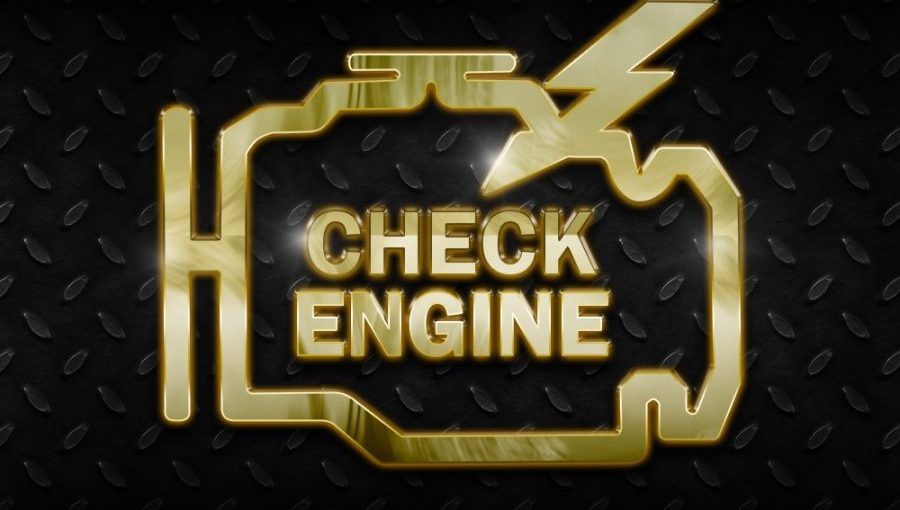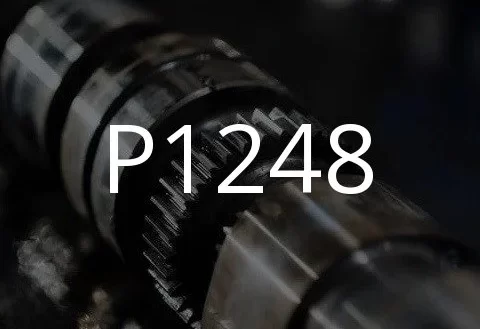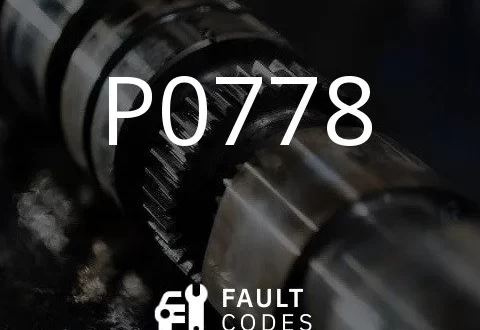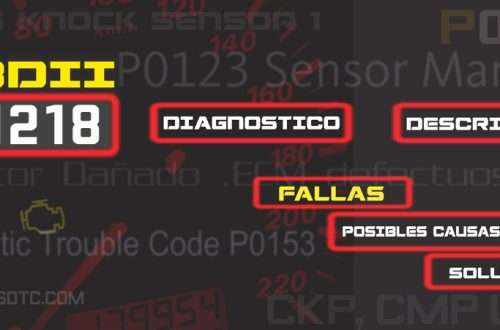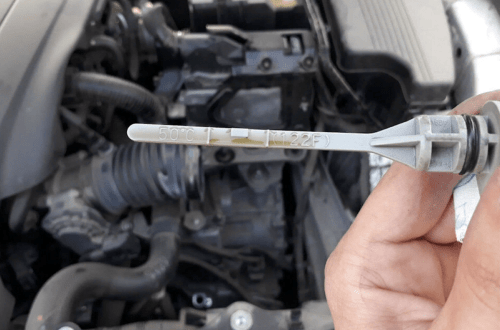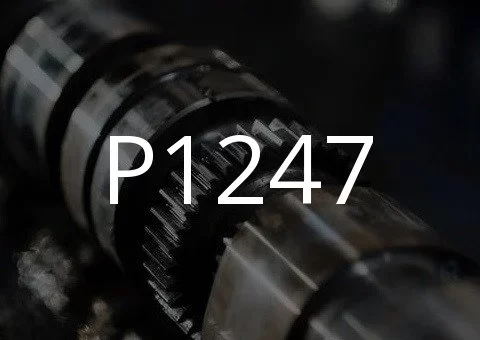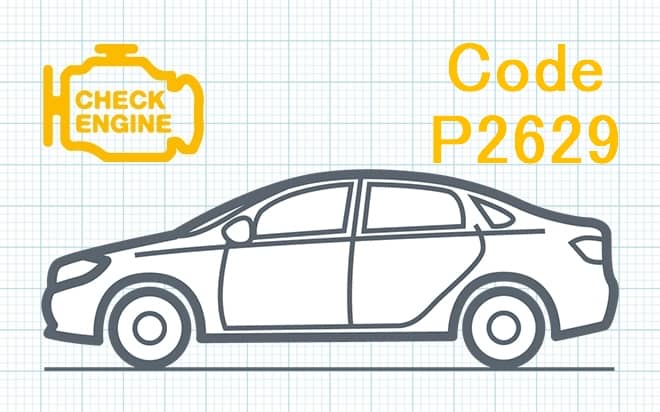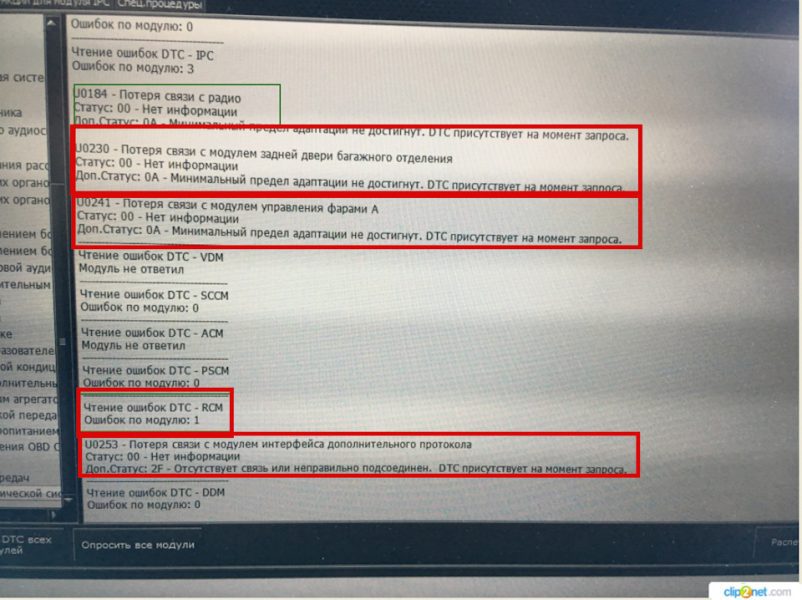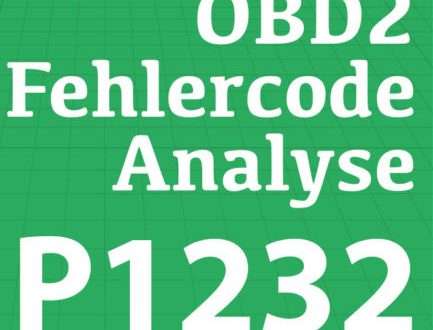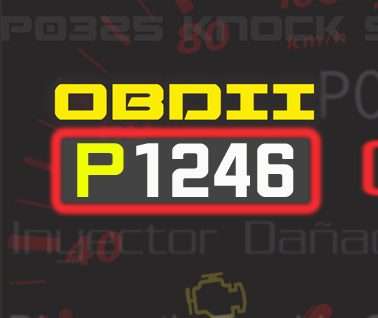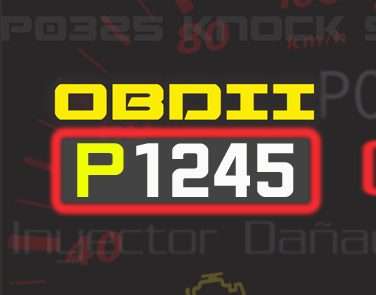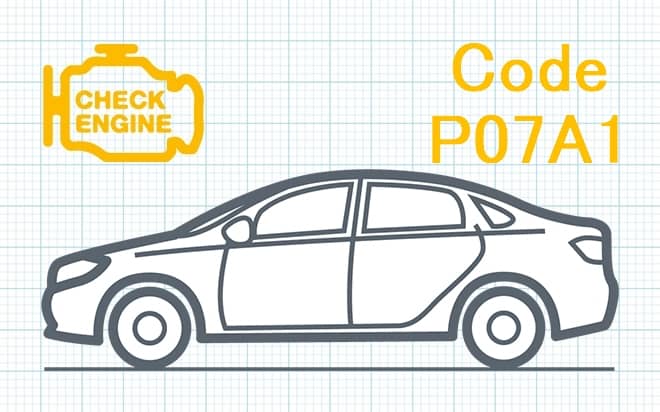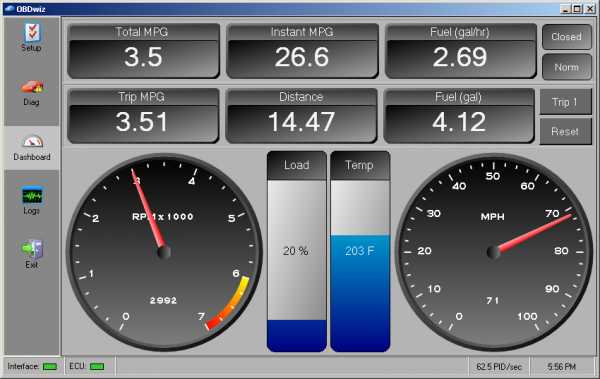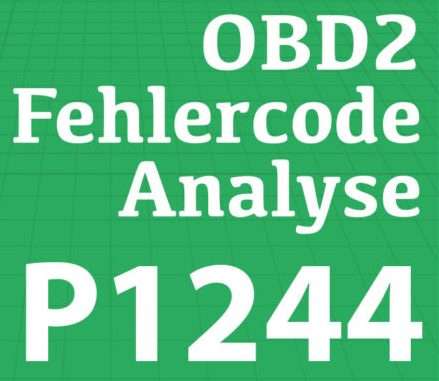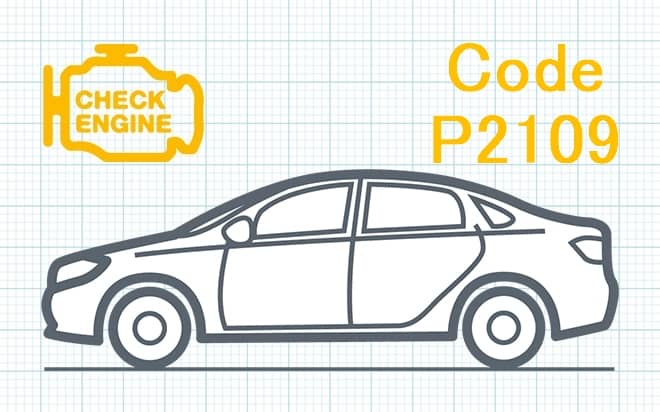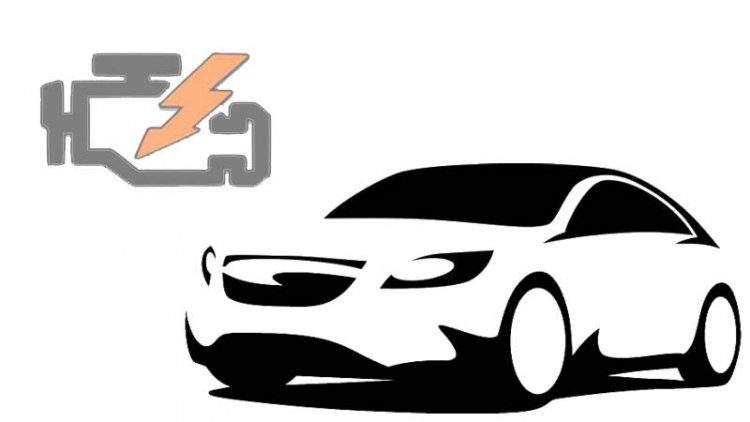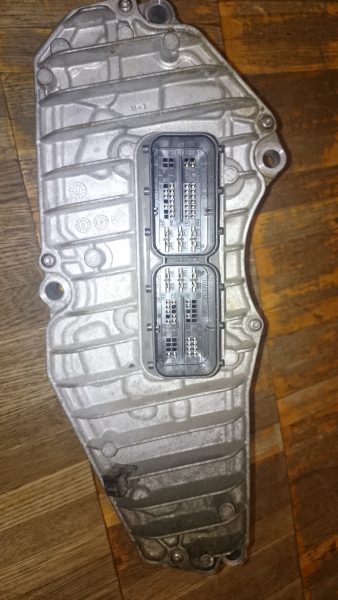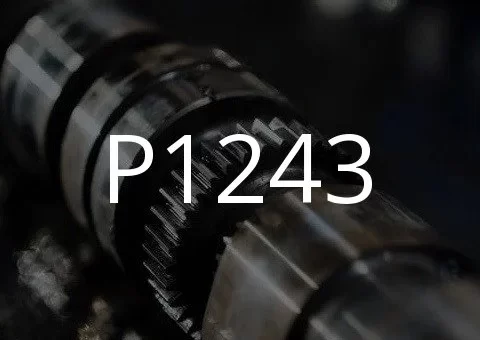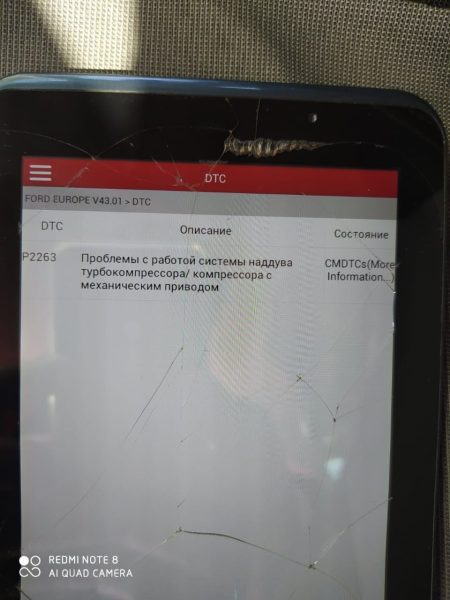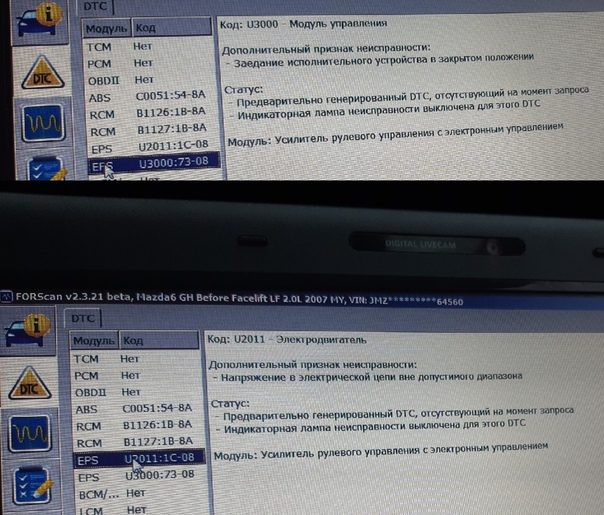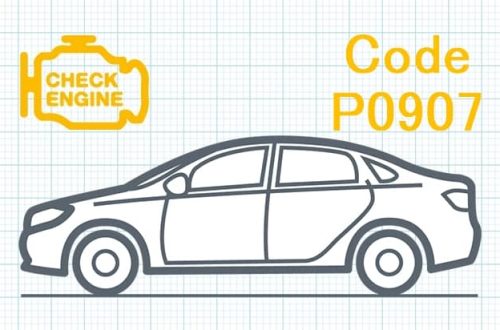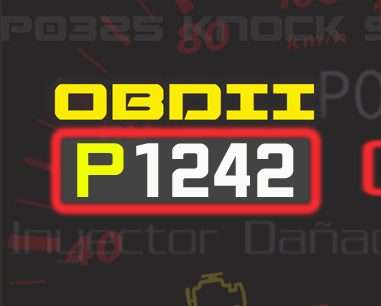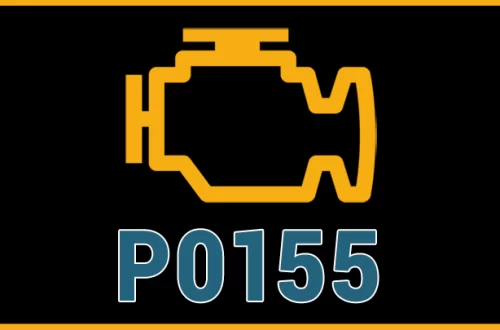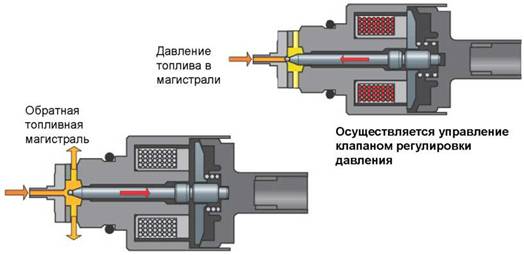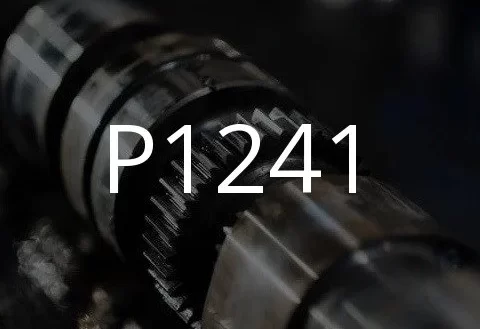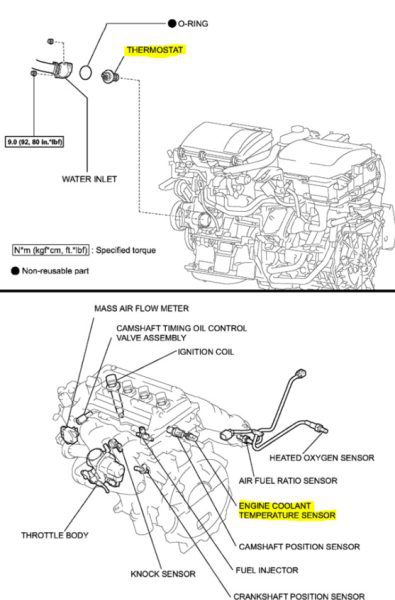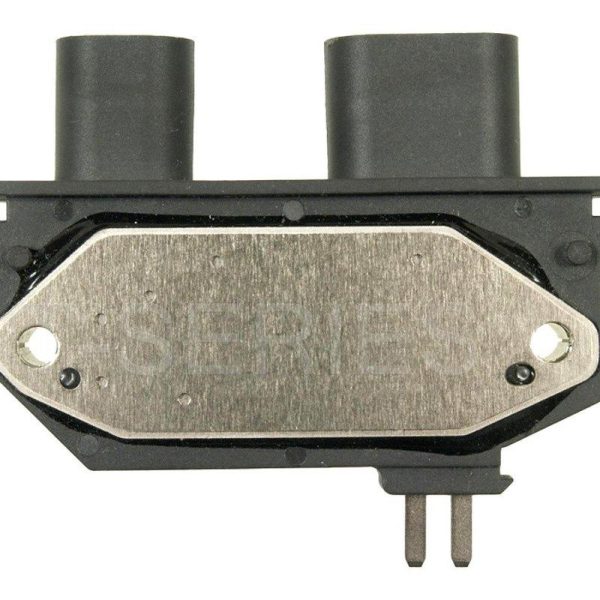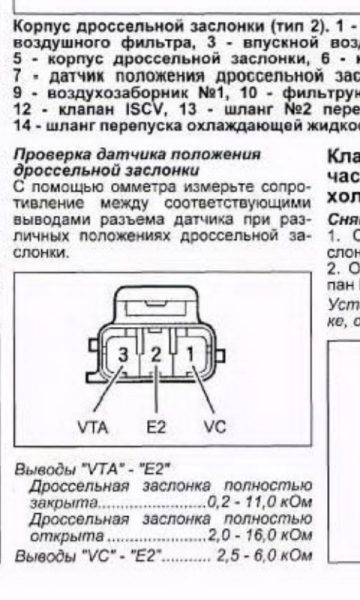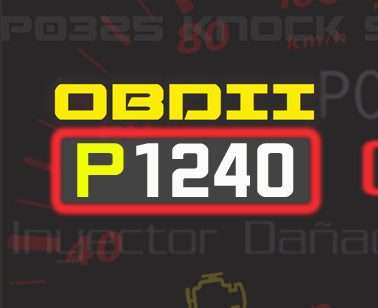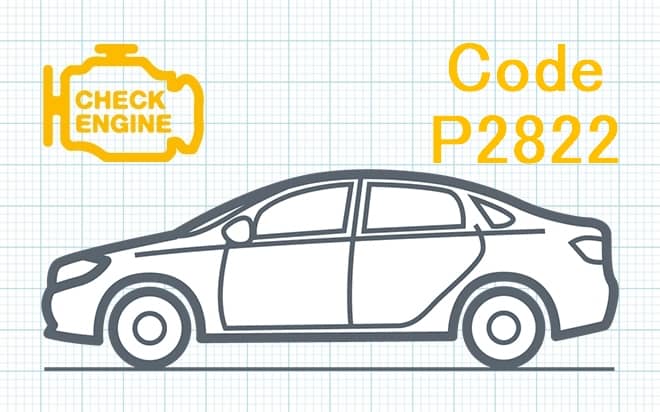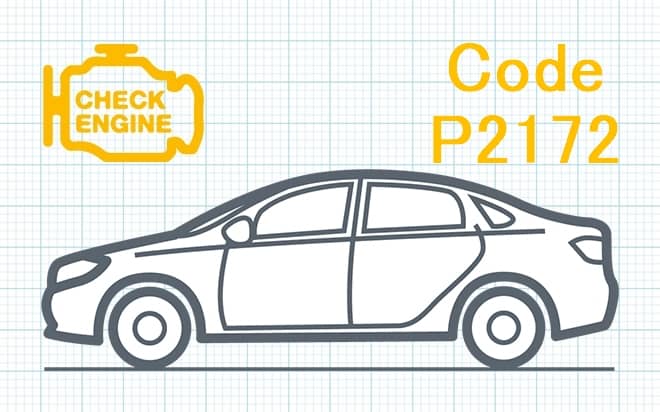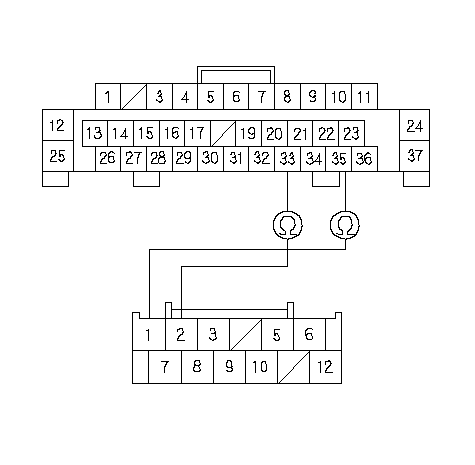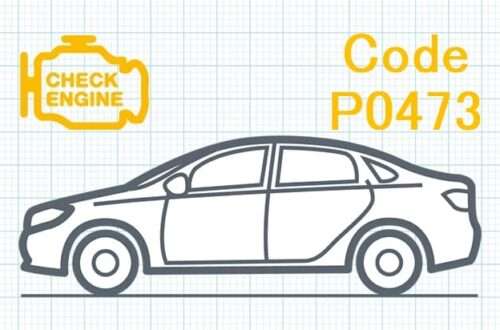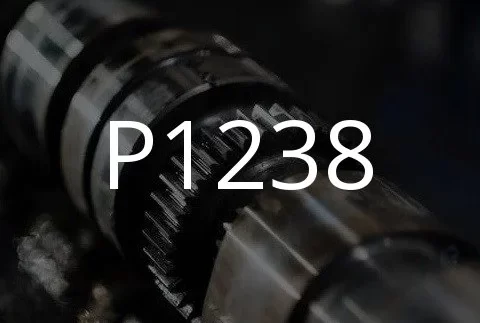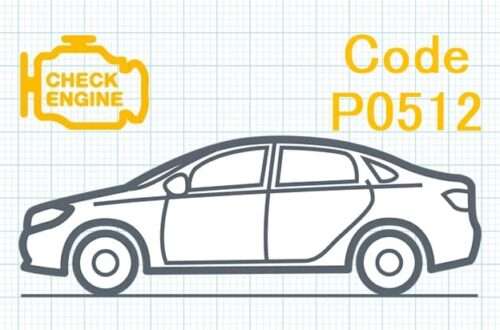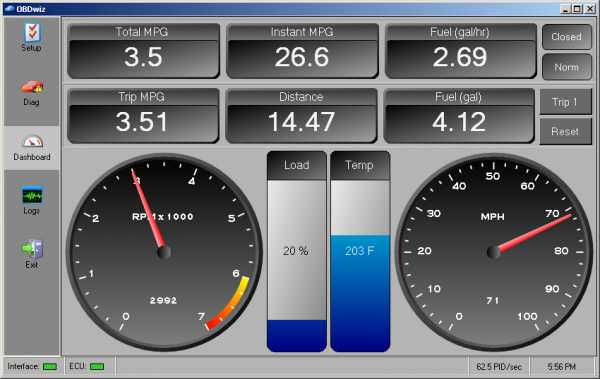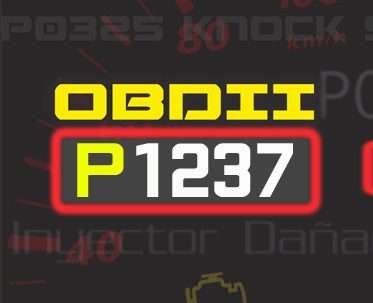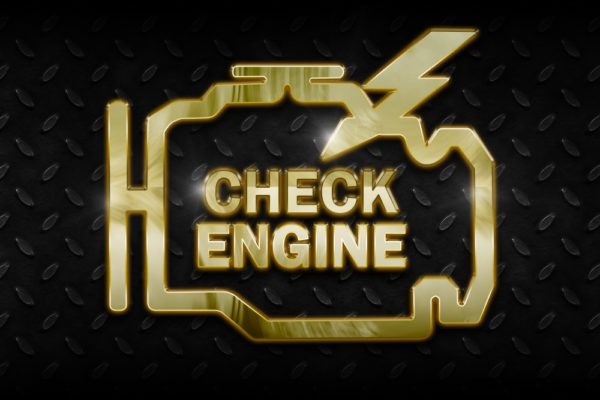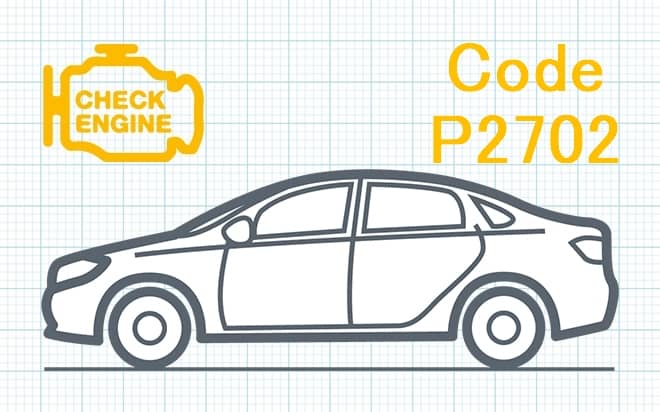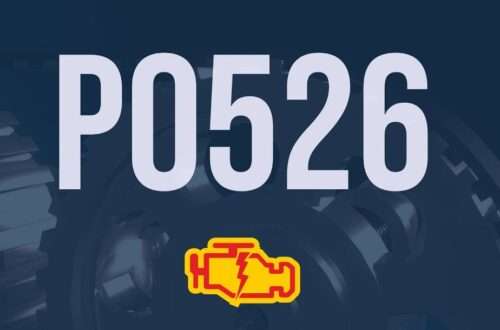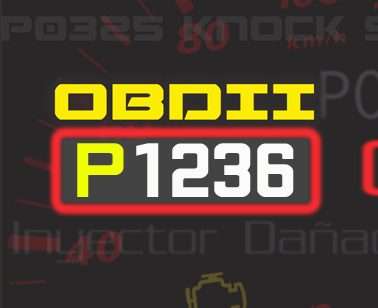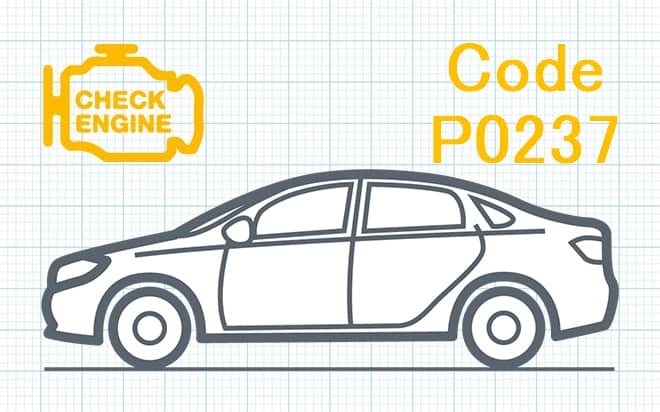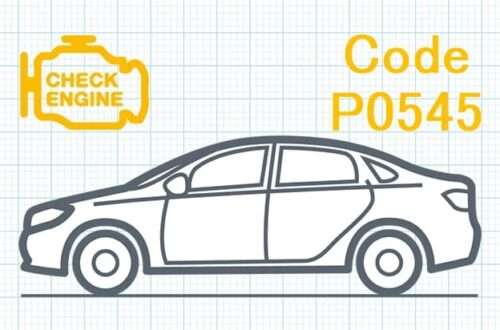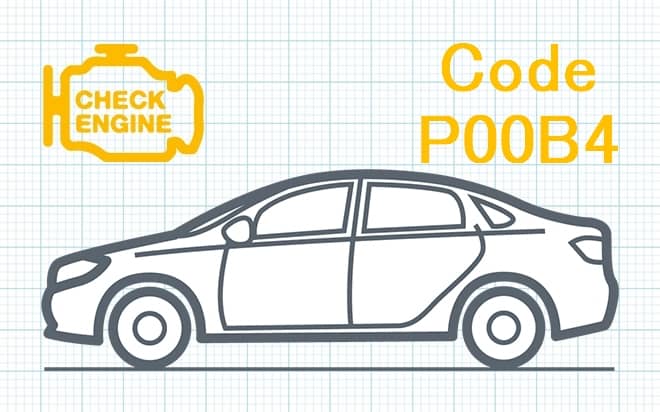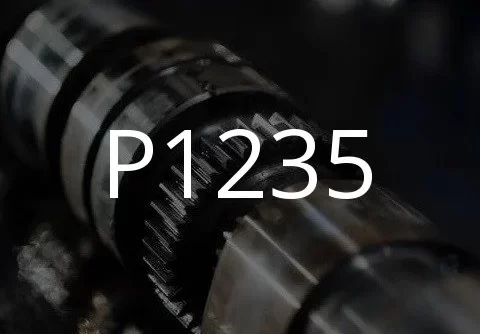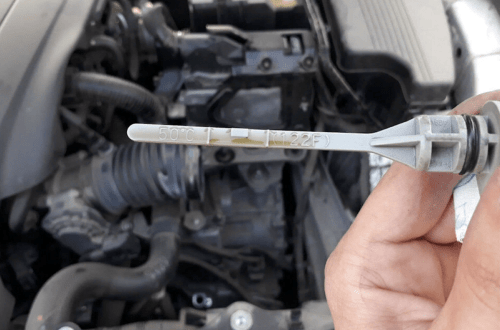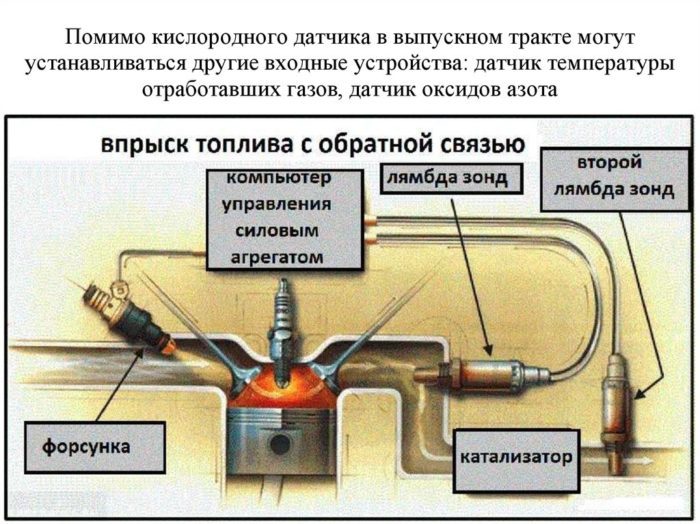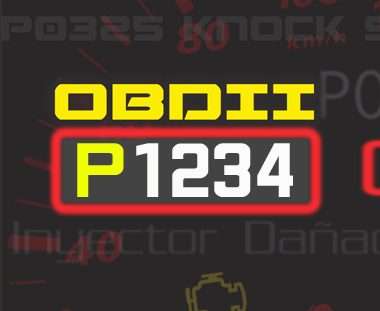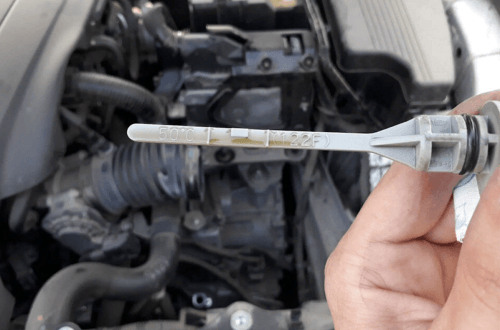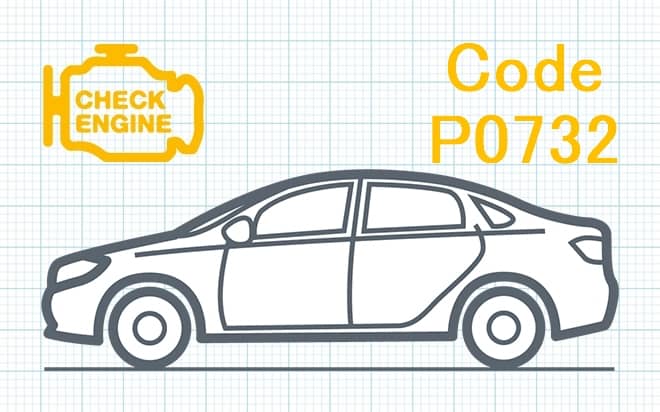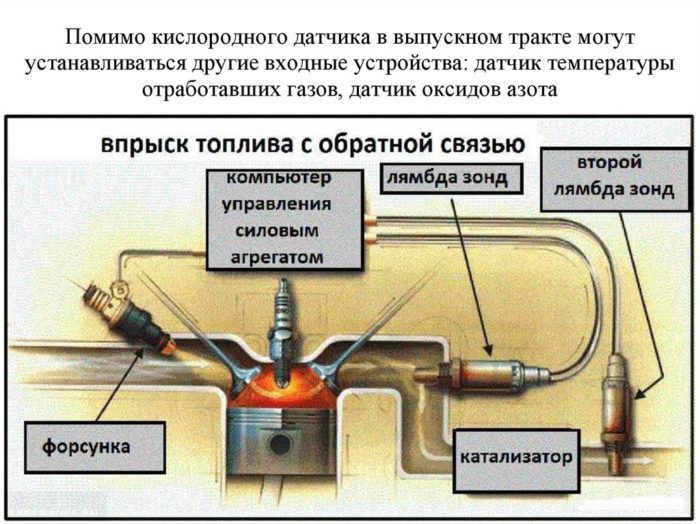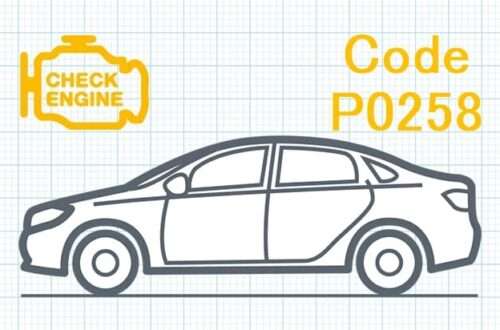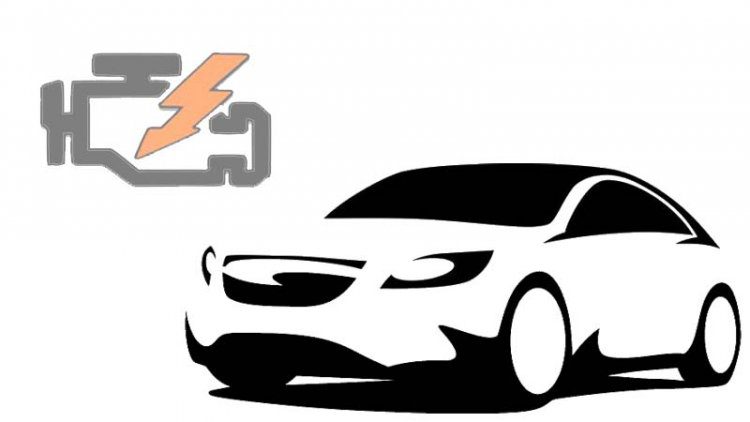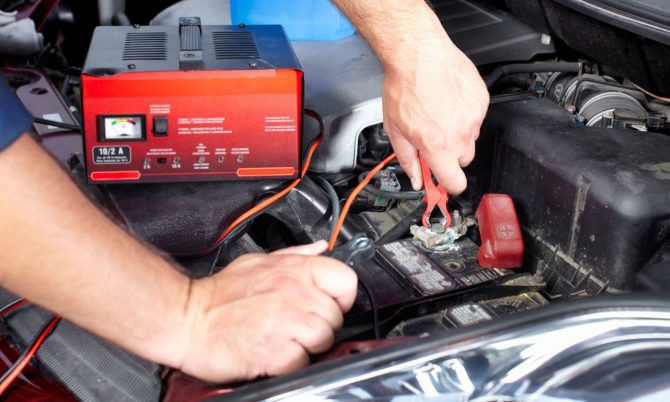P1248 (Volkswagen, Audi, Skoda, Seat) Start of fuel injection - regulation deviation
P1248 – Technical description of the OBD-II fault code The fault code P1248 indicates a deviation in the control of the start of fuel injection in Volkswagen, Audi, Skoda, Seat vehicles. What does trouble code P1248 mean? Trouble code P1248 indicates a fuel injection start control deviation. In diesel engine fuel injection systems, injection start control plays a key role in optimizing engine performance. Injection start determines the point at which fuel is injected into the engine cylinder, which affects combustion efficiency, power, fuel consumption and emissions. Deviation in injection timing control can lead to poor engine performance, increased fuel consumption, increased emissions and other serious problems. Possible Causes Some of the possible causes for the P1248 trouble code are: These are just a few of the possible...
P1247 (Volkswagen, Audi, Skoda, Seat) Fuel injector needle stroke sensor - open circuit/short circuit to positive
P1247 – Technical description of the OBD-II fault code The fault code P1247 indicates an open circuit/short to positive in the electrical circuit of the fuel injector needle stroke sensor in Volkswagen, Audi, Skoda, Seat vehicles. What does trouble code P1247 mean? Trouble code P1247 indicates a problem in the fuel injector needle stroke sensor circuit. The needle stroke sensor monitors the fuel supply to the engine, ensuring optimal mixing of fuel with air for proper combustion in the cylinders. In this case, an open circuit or short to positive means that the electrical circuit connecting the sensor to the engine control unit is experiencing problems. An open circuit means that the electrical connection between the sensor and the engine control module is interrupted, resulting in loss of communication with...
P1246 (Volkswagen, Audi, Skoda, Seat) Fuel injector needle stroke sensor - unreliable signal
P1246 – Technical description of the OBD-II fault code The P1246 fault code indicates an unreliable signal in the electrical circuit of the fuel injector needle stroke sensor in Volkswagen, Audi, Skoda, Seat vehicles. What does trouble code P1246 mean? Trouble code P1246 indicates a problem in the fuel injector needle stroke sensor circuit. The needle stroke sensor monitors the fuel supply to the engine, ensuring optimal mixing of fuel with air for proper combustion in the cylinders. An unreliable signal may mean that the information coming from the sensor is not as expected or is not reliable. Possible Causes There are several possible causes for the P1246 trouble code: It is important to remember that to accurately determine the cause of the P1246 code, diagnostics must be performed, including checking the sensor, wiring, connectors and...
P1245 (Volkswagen, Audi, Skoda, Seat) Fuel injector needle stroke sensor - short circuit to ground
P1245 – Technical description of the OBD-II fault code The fault code P1245 indicates a short circuit to ground in the electrical circuit of the fuel injector needle stroke sensor in Volkswagen, Audi, Skoda, Seat vehicles. What does trouble code P1245 mean? Trouble code P1245 indicates a problem with the fuel injector needle stroke sensor circuit, namely a short circuit to ground. This sensor is responsible for controlling the fuel supply to the engine, and if it is not functioning correctly, it can result in uneven or insufficient fuel delivery, which can affect engine operation and impair engine performance. Possible Causes Some possible causes for DTC P1245 include: When diagnosing and repairing this problem, it is recommended that you contact a qualified automotive...
P1244 (Volkswagen, Audi, Skoda, Seat) Cylinder 8 injector – open circuit
P1244 – Technical description of the OBD-II fault code The fault code P1244 indicates an open circuit in the electrical circuit of the cylinder 8 injector in Volkswagen, Audi, Skoda, Seat vehicles. What does trouble code P1244 mean? Trouble code P1244 is a diagnostic code that indicates a specific problem in the vehicle. In this case, it indicates an open in the cylinder 8 injector circuit. When the vehicle detects a fault, it generates this code to alert the driver to correct the problem. A break in the electrical circuit can result in insufficient fuel supply to the cylinder, which can cause improper engine operation, loss of power, increased fuel consumption and other problems. Possible Causes Possible causes for DTC P1244: These are just a few of the possible...
P1243 (Volkswagen, Audi, Skoda, Seat) Cylinder 7 injector – open circuit
P1243 – Technical description of the OBD-II fault code The fault code P1243 indicates an open circuit in the electrical circuit of the cylinder 7 injector in Volkswagen, Audi, Skoda, Seat vehicles. What does trouble code P1243 mean? Trouble code P1243 is a diagnostic code that indicates a specific problem in the vehicle. In this case, it indicates an open in the cylinder 7 injector circuit. When the vehicle detects a fault, it generates this code to alert the driver to correct the problem. A break in the electrical circuit can result in insufficient fuel supply to the cylinder, which can cause improper engine operation, loss of power, increased fuel consumption and other problems. Possible Causes Possible causes for DTC P1243: These are just a few of the possible...
P1242 (Volkswagen, Audi, Skoda, Seat) Cylinder 6 injector – open circuit
P1242 – Technical description of the OBD-II fault code The fault code P1242 indicates an open circuit in the electrical circuit of the cylinder 6 injector in Volkswagen, Audi, Skoda, Seat vehicles. What does trouble code P1242 mean? Trouble code P1242 is a diagnostic code that indicates a specific problem in the vehicle. In this case, it indicates an open in the cylinder 6 injector circuit. When the vehicle detects a fault, it generates this code to alert the driver to correct the problem. A break in the electrical circuit can result in insufficient fuel supply to the cylinder, which can cause improper engine operation, loss of power, increased fuel consumption and other problems. Possible Causes Possible causes for DTC P1246: These are just a few of the possible...
P1241 (Volkswagen, Audi, Skoda, Seat) Cylinder 5 injector – open circuit
P1241 – Technical description of the OBD-II fault code The fault code P1241 indicates an open circuit in the electrical circuit of the cylinder 5 injector in Volkswagen, Audi, Skoda, Seat vehicles. What does trouble code P1241 mean? Trouble code P1241 is a diagnostic code that indicates a specific problem in the vehicle. In this case, it indicates an open in the cylinder 5 injector circuit. When the vehicle detects a fault, it generates this code to alert the driver to correct the problem. A break in the electrical circuit can result in insufficient fuel supply to the cylinder, which can cause improper engine operation, loss of power, increased fuel consumption and other problems. Possible Causes Possible causes for DTC P1241: These are just a few of the possible...
P1240 (Volkswagen, Audi, Skoda, Seat) Cylinder 4 injector – open circuit
P1240 – Technical description of the OBD-II fault code The fault code P1240 indicates an open circuit in the electrical circuit of the cylinder 4 injector in Volkswagen, Audi, Skoda, Seat vehicles. What does trouble code P1240 mean? Trouble code P1240 is a diagnostic code that indicates a specific problem in the vehicle. In this case, it indicates an open in the cylinder 4 injector circuit. When the vehicle detects a fault, it generates this code to alert the driver to correct the problem. A break in the electrical circuit can result in insufficient fuel supply to the cylinder, which can cause improper engine operation, loss of power, increased fuel consumption and other problems. Possible Causes Possible causes for DTC P1240: These are just a few of the possible...
P1239 (Volkswagen, Audi, Skoda, Seat) Cylinder 3 injector – open circuit
P1239 – Technical description of the OBD-II fault code The fault code P1239 indicates an open circuit in the electrical circuit of the cylinder 3 injector in Volkswagen, Audi, Skoda, Seat vehicles. What does trouble code P1239 mean? Trouble code P1239 is a diagnostic code that indicates a specific problem in the vehicle. In this case, it indicates an open in the cylinder 3 injector circuit. When the vehicle detects a fault, it generates this code to alert the driver to correct the problem. A break in the electrical circuit can result in insufficient fuel supply to the cylinder, which can cause improper engine operation, loss of power, increased fuel consumption and other problems. Possible Causes Possible causes for DTC P1239: These are just a few of the possible...
P1238 (Volkswagen, Audi, Skoda, Seat) Cylinder 2 injector – open circuit
P1238 – Technical description of the OBD-II fault code The fault code P1238 indicates an open circuit in the electrical circuit of the cylinder 2 injector in Volkswagen, Audi, Skoda, Seat vehicles. What does trouble code P1238 mean? Trouble code P1238 is a diagnostic code that indicates a specific problem in the vehicle. In this case, it indicates an open in the cylinder 2 injector circuit. When the vehicle detects a fault, it generates this code to alert the driver to correct the problem. A break in the electrical circuit can result in insufficient fuel supply to the cylinder, which can cause improper engine operation, loss of power, increased fuel consumption and other problems. Possible Causes Possible causes for DTC P1238: These are just a few of the possible...
P1237 (Volkswagen, Audi, Skoda, Seat) Cylinder 1 injector – open circuit
P1237 – Technical description of the OBD-II fault code The fault code P1237 indicates an open circuit in the electrical circuit of the cylinder 1 injector in Volkswagen, Audi, Skoda, Seat vehicles. What does trouble code P1237 mean? Trouble code P1237 is a diagnostic code that indicates a specific problem in the vehicle. In this case, it indicates an open in the cylinder 1 injector circuit. When the vehicle detects a fault, it generates this code to alert the driver to correct the problem. A break in the electrical circuit can result in insufficient fuel supply to the cylinder, which can cause improper engine operation, loss of power, increased fuel consumption and other problems. Possible Causes Possible causes for DTC P1237: These are just a few of the possible...
P1236 (Volkswagen, Audi, Skoda, Seat) Lambda correction after the catalyst, bank 4 – regulation limit reached
P1236 – OBD-II Trouble Code Technical Description Trouble code P1236 refers to a problem with the post-catalytic oxygen sensor signal, bank 4, in Volkswagen, Audi, Skoda, Seat vehicles. What does trouble code P1236 mean? Trouble code P1236 indicates a problem with the post catalytic converter oxygen sensor signal, engine bank 4. This oxygen sensor measures the oxygen content of the exhaust gases as they pass through the catalytic converter. When code P1236 occurs, it means that the engine management system has detected that the signal from the post-catalytic oxygen sensor is outside the expected range or is not within specified parameters. Possible Causes Trouble code P1236 can be caused by various reasons related to the operation of the exhaust system and oxygen sensor,...
P1235 (Volkswagen, Audi, Skoda, Seat) Lambda correction after the catalyst, bank 3 – regulation limit reached
P1235 – OBD-II Trouble Code Technical Description Trouble code P1235 refers to a problem with the post-catalytic oxygen sensor signal, bank 3, in Volkswagen, Audi, Skoda, Seat vehicles. What does trouble code P1235 mean? Trouble code P1235 indicates a problem with the post catalytic converter oxygen sensor signal, engine bank 3. This oxygen sensor measures the oxygen content of the exhaust gases as they pass through the catalytic converter. When code P1235 occurs, it means that the engine management system has detected that the signal from the post-catalytic oxygen sensor is outside the expected range or is not within specified parameters. Possible Causes Trouble code P1235 can be caused by various reasons related to the operation of the exhaust system and oxygen sensor,...
P1234 (Volkswagen, Audi, Skoda, Seat) Error when supplying fuel through the discharge line
P1234 – Technical description of the OBD-II fault code The P1234 fault code indicates an error when supplying fuel through the injection line in Volkswagen, Audi, Skoda, Seat cars. What does trouble code P1234 mean? Trouble code P1234 indicates a problem with the fuel supply through the injection line in Volkswagen, Audi, Skoda and Seat vehicles. The injection line is responsible for transporting fuel from the fuel tank to the engine, providing it with the necessary amount of fuel to operate properly. When this code appears, it can indicate a variety of problems, such as fuel pressure sensors, electrical connections, or problems with the engine management system itself. Possible Causes Trouble code P1234 can be caused by various reasons: What are the symptoms of trouble code P1234? Symptoms with code...
P1233 (Volkswagen, Audi, Skoda, Seat) Load metering error
P1233 – Technical description of the OBD-II fault code The fault code P1233 indicates a load metering error in Volkswagen, Audi, Skoda, Seat vehicles. What does trouble code P1233 mean? Trouble code P1233 indicates a problem with the load sensing system in Volkswagen, Audi, Skoda and Seat vehicles. This system is responsible for monitoring and adjusting the amount of fuel injected into the engine depending on the current load on the vehicle. When this code appears, it can indicate a variety of problems, such as fuel pressure sensors, electrical connections, or problems with the engine management system itself. Possible Causes Trouble code P1233 can be caused by various reasons: To accurately determine the cause of the P1233 error code, it is recommended to conduct a detailed diagnosis of the vehicle using specialized equipment...
